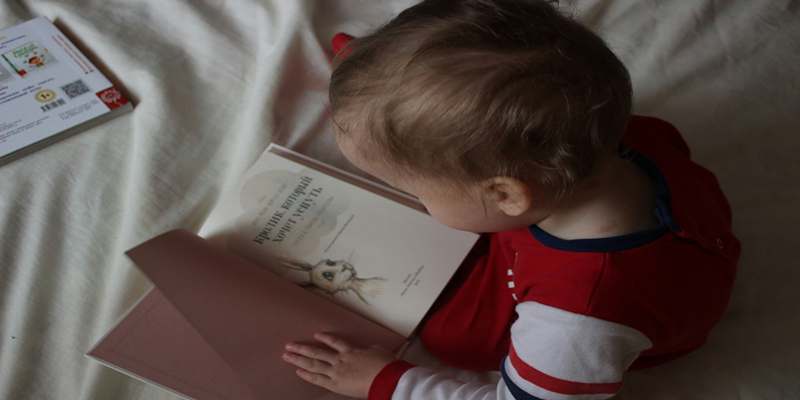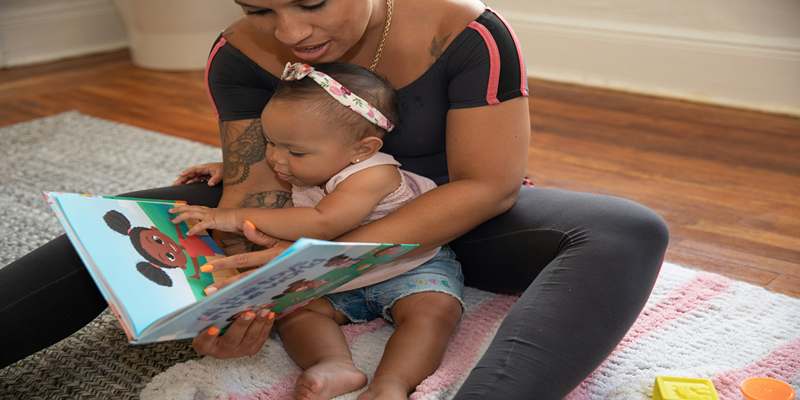Ways to Support Language Development in Toddlers
Language development can be said to be an essential aspect of the developmental process of a toddler. Promoting speech development in toddlers does not only affect their speech growth but also enables them to develop an understanding of the environment around them. Play is one of the most effective activities or interventions that can be used to enhance the language development of a toddler. Sociodramatic play helps toddlers and offers chances for them to listen to language and practice the use of language. This piece will focus on how one can ensure that the growth of language in the toddler is encouraged through play.

The Role of Play in Toddler Language Development
Why Play is Essential for Speech Skills in Toddlers
Play is a natural and fun method that can be used in the development of speech and language skills among toddlers. In play, a child is also able to learn new words, how to frame a sentence, and how to express themselves. Observing the interactions from the caregivers as well as the other children in the group, toddlers are able to develop mimicry of the sounds, words, and gestures used in communication processes. Play also enhances language development through listening as the children listen to the language used by other people. Play thus enables the toddlers to use the language in a more relaxed and unhurried manner without the constraints of learning.
How Different Types of Play Enhance Language Growth
The type of play that is offered to toddlers can have quite a powerful influence on the development of their language skills. Playing with peers or caregivers helps toddlers to learn how to listen or take turns in a conversation during the play. This is especially so when children are playing with objects such as blocks or dolls, whereby they describe what they are doing. Pretend play also assists the toddlers to practice the formation of larger sentences during role play of different scenarios. Every type of play is useful in enhancing different aspects of speech and language in toddlers depending on the type of play activity.
Interactive Play Ideas to Help Toddlers Talk
Using Toys and Games to Encourage Conversation
As we know, toys and games can be a great way to help the child to practice language in communication with others. For instance, simple toys like dolls, cars, animal figures, etc., provide numerous possibilities for toddlers to develop make-believe play. During the playtime, it is possible for the caregivers to teach the child new words and phrases and ask them to repeat what they say, name objects, describe events, or ask questions. Other toys that entail interactivity, such as shape sorters or toys that mimic musical instruments, also encourage verbal engagement. In this way, the development of playtime will be fun, and hopefully the children will use language while playing to express themselves.
Role-Playing and Pretend Play for Speech Development
Role-playing games like “house,” “store,” or “doctor” are among the best ways that will help to encourage the use of language creativity among toddlers. In such activities, children pretend to be involved in real-life situations in which they can try out the various aspects of their language, such as questioning, commanding, or appealing for something. This type of play assists the toddlers in the way they comprehend or use social language and enhances the kind of sentence structures they use. It also let the toddlers practice on how to express themselves and how to relate to other people, which is an important ingredient in interpersonal communication.
Creating a Language-Rich Environment for Toddlers
The Impact of Reading Aloud on Language Skills
It has also been identified that one of the best practices that help in the development of language in toddlers is reading to them. Books broaden the children’s childhood vocabulary, their ideas, and the sentences they use in their speech, so they learn how language functions. It is useful to read to caregivers since one can stop and ask questions, point at pictures, or even describe what is going on in the book, which will help develop toddlers’ interaction with the text. Repetition is also important because when a certain word or phrase is repeated several times, it becomes easy for the toddler to pick up and use in his or her own speech.

Incorporating Conversations Into Daily Routines
Daily conversation is one of the most effective and basic forms of helping a language to develop. It is possible to explain to the child in words what is being done during the preparation of food, dressing, or cleaning, and at the same time the child listens and practices using the words. The caregivers can put names to objects, explain what they are doing, and ask general questions that would make the toddlers answer. For instance, while dressing, one can ask, “What color is your shirt?” as they are eating soup, for example, “Do you suppose anything will occur if one stirs the soup?” These social contacts offer the toddler familiar and realistic opportunities to use the language in real-life situations.
Encouraging Communication Through Simple Activities
It is fun to explain songs and nursery rhymes to toddlers in order to aid them in the development of their language. This is so because songs have a rhythmic approach, and due to the repetition of words and phrases, it becomes quite easier for toddlers to learn and even memorize them. Songs and rhymes that include some actions or movements also assist the toddlers to relate the words with bodily movements so that the learning process is both fun and engaging. Singing together also promotes joint attention, where both the child and the caregiver are directed towards the song and each other.
Conclusion
Play-based strategies specifically on language development in toddlers are beneficial and fun. This is because toys, books, songs, and other activities that are in the daily regime of a toddler are resources that can be used to facilitate speech and language development. It is often said that practice makes perfect, especially when it comes to learning a new language, and the process requires a lot of patience. So that in case of any problems with your toddler, you may wish to consult a professional in order to ensure that your child is assisted appropriately.












